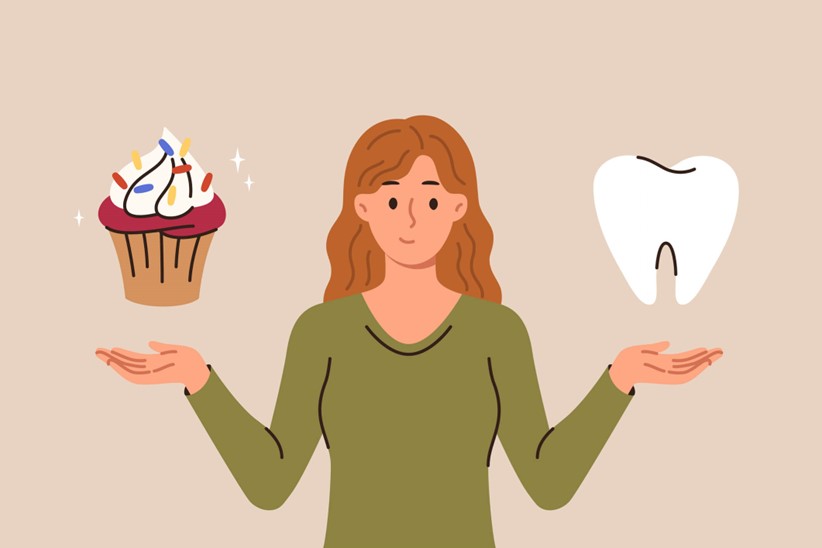How Preventive Dentistry Promotes Long-Term Oral Health

Preventive dentistry lays the groundwork for a healthy smile. It focuses on keeping problems at bay rather than delaying treatment until damage has occurred. With regular dental checkups and strong at-home oral hygiene habits, patients can avoid discomfort and preserve the appearance and functionality of their teeth. Here’s a closer look at why everyone should prioritize preventive dental care.
Benefits of Preventive Dental Services
It’s easy to skip going to the dentist, but routine dental care can make a lifelong difference in your oral health and confidence. Here are the benefits to expect:
- Early cavity detection: Cavities are easier and less expensive to treat when caught early. Regular checkups and digital imaging allow dentists to spot decay before it spreads or causes pain. Addressing these issues early avoids more complicated procedures like fillings or root canals.
- Healthy gums: Preventive care supports gum health and reduces inflammation. Gum disease starts with subtle symptoms like bleeding or tenderness, which are easy to overlook. Routine cleanings remove plaque buildup and help patients avoid the more serious stages of periodontal disease.
- Better overall health: Maintaining good oral hygiene habits reduces the risk of health complications that extend beyond your mouth. Many people are surprised to learn that oral infections and chronic inflammation are linked to heart disease, diabetes, and respiratory illness. In this way, maintaining a healthy mouth promotes a healthier body overall.
- Lower long-term costs: Preventive visits cost far less than complex restorative treatments. Investing in regular cleanings and early exams can save you thousands of dollars over the years.
- Better confidence: Consistent care helps you smile more confidently. It helps maintain fresh breath and clean teeth and offers peace of mind that your mouth is in good shape.
Most Common Types of Preventive Dentistry
Dentists provide several preventive services designed to stop problems before they start:
- Dental checkups and professional cleanings: Routine office visits form the foundation of preventive care. Dentists assess the teeth, gums, bite alignment, and existing dental work to ensure everything is functioning properly. Then, hygienists remove hardened plaque, polish teeth, and offer guidance on how to improve daily habits.
- Digital X-rays: X-rays help detect cavities, bone loss, and hidden infections. They provide crucial insights that can’t be gathered through visual exams alone.
- Oral cancer screenings: During this routine part of a dental exam, dentists check for abnormalities in the soft tissues of the mouth and throat. Detecting oral cancer early greatly improves treatment outcomes.
- Fluoride treatments: This mineral treatment reinforces enamel and helps prevent decay. It’s especially beneficial for children, but adults with dry mouth or frequent cavities may also benefit.
- Dental sealants: Applied to the chewing surfaces of a child’s back teeth, sealants fill in deep grooves where toothbrush bristles often miss. This acts as a shield against food particles and bacteria, reducing the likelihood of decay.
Good At‑Home Oral Hygiene Habits
Preventive care doesn’t only happen at the dentist’s office. Here are the oral hygiene habits that build a strong defense between visits:
- Brush twice daily: Choose a soft-bristled toothbrush and use a fluoride-based toothpaste. Each session should last at least two minutes and cover the fronts, backs, and chewing surfaces of every tooth. Don’t forget to scrub your tongue—germs like to hide there, too!
- Floss daily: Plaque collects between the teeth and below the gumline, places your toothbrush can’t reach. Consistent flossing helps prevent cavities and reduces the risk of gum disease.
- Use mouthwash: A fluoride rinse strengthens enamel, while antiseptic mouthwash reduces bacteria and inflammation. Look for alcohol-free formulas to avoid dry mouth.
- Watch your sugar intake: Sugar feeds the bacteria that cause cavities. Choose fiber-rich fruits and vegetables, drink water instead of soda, and limit snacking between meals to maintain healthier teeth.
- Stay hydrated: Water helps wash away food particles and bacteria while encouraging saliva production. Tap water often contains fluoride, which adds extra protection with every sip.
- Wear a mouthguard: If you grind your teeth in your sleep or play contact sports, wear a custom-fitted mouthguard to protect against chips, fractures, and soft tissue damage.
- Avoid bad habits: Things like biting your nails, chewing ice, and smoking cigarettes wear down your teeth and may affect more than just your smile. Steer clear of them to protect your oral health and overall well-being.
Visit S&C Dental Beverly Hills
Now that you understand the importance of preventive dentistry, the next step is to find a dentist you can trust. S&C Dental Beverly Hills strives to make every visit welcoming and worth your time. We emphasize preventive care to support lifelong oral health for the whole family. Of course, if problems arise, our restorative treatments are here to help you regain your confident smile. Schedule your next dental checkup through our website and let us help you stay ahead of dental problems.
